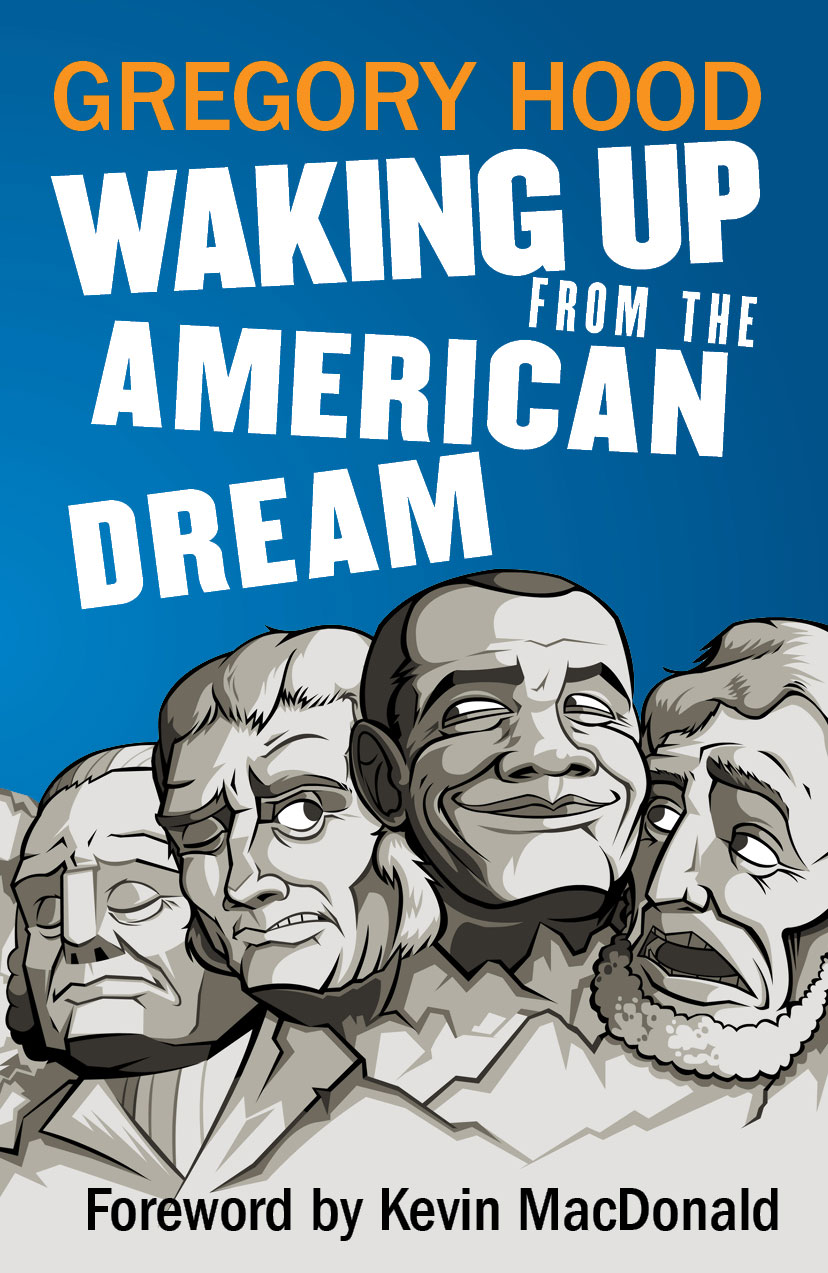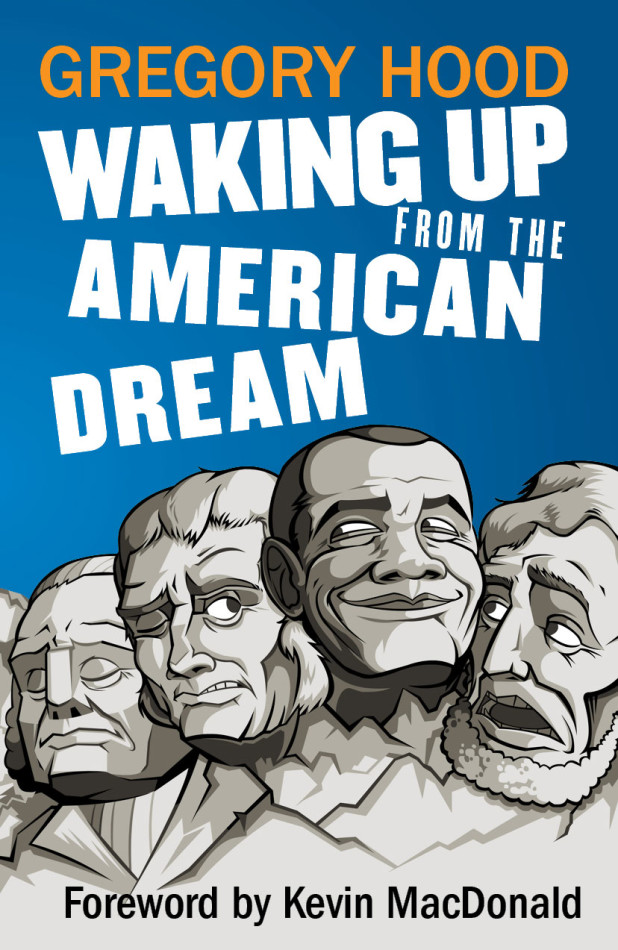Atlantic Centurion
June 8, 2016
Gregory Hood
Waking Up from the American Dream
San Francisco: Counter-Currents, 2016
A friend of mine and fellow traveler of ours can trace his ancestry in America all the way back to the colonial period. His ancestors’ bones are interred in a old neighborhood in one of our oldest cities. Undoubtedly, they were laid to rest by a community that was very much like themselves, a European one. But were you to visit that area today, it would be unclear what country you were in—that is, until you realize the ethnic composition of the area could only be possible (until very recently) in just one country, the United States of America. Today, his ancestors are buried beneath a sweltering mass of non-white colonists from the global south, who have come there to acquire marginal economic improvements in their standard of living at the invitation and support of the government. Should affairs in this country proceed business as usual, we and our descendants will meet the same fate, being buried in a land which is neither for our posterity nor mourning us. And this was all made possible by the founding “ideas” of this country.
This is the kind of punch Gregory Hood lands in Waking Up From the American Dream, his first book, which Counter-Currents published in May 2016. Waking Up is a collection of essays with one overarching and crucial theme, critique of the American experiment from an identitarian or nationalist perspective. Hood’s America is one that we are all familiar with—an America of materialism, junk culture, social and familial disintegration, and White demographic displacement—but what he identifies as the root cause of all this rot is sure to be a bitter pill for conservatives and constitutionalists.
Ideas can structure a government, but they do not make a nation. Hood argues persuasively that America’s reliance on ideas and not identity to define itself is what led to our decline. One idea in particular standards at the forefront, “All men are created equal.” It’s an idea that many an observer, including Hood, have noted the Founding Fathers could have only believed in cynically. They owned slaves. They were “racists” and “white supremacists,” as anyone with a college education could tell you. They believed in an aristocratic republic where only a minority of the population was allowed to vote, on the basis of their sex, race, property, and in some states, religion. A citizen in ancient Athens had more access to the franchise than one in the early republic. But despite these founding contradictions, the idea of equality and of America as a land of equality has been dutifully executed and brought to its logical conclusion in the current year, which is one of Hood’s many crucial insights.
Once you bundle a set of ideas into an ideology, there is a certain direction it must follow. It becomes a self-fulfilling project, a prophecy, a living document. This is precisely the problem Hood identifies with the civic ideology widely believed in by conservatives. A society which holds equality to be its central paradigm is not going to allow inequalities or the people who notice them to persist unmolested. It will have to do something about them. And so it has. All of the faults we find in our contemporary “America,” or a very great deal of them, are products of this 200-years-and-counting process of implementing and perfecting the claims made in our founding documents, whether by the government itself, or by those who take stock in American mythology. The Dept. of Housing and Urban Development that puts non-whites into vanilla suburbs at your expense and the Army your grandfathers proudly served in are part of the same monster.
In the first third of Waking Up, the case for our need to separate ourselves as a people from the legal abstraction of the United States comes into focus. Hood explains how the historical American nation—that is to say Europeans—thrived and accomplished great things on this soil not because of our yellowed parchment or magic dirt but in spite of them. Waking up does not mean we have no usable past, it means a reinterpretation of that past without the lens of classical liberalism. Indeed, Hoods notes that the Constitution was expressly written for “ourselves and our posterity,” as in the Preamble, but this implied national identity has proven insufficient. We can no longer afford to take our possession of this country, any country, for granted. It has to be staked and claimed.
The latter parts of Hood’s book tackle the issues of establishment conservative impotence and the pseudo-identity politics that Republicans have run with over the last few decades. We are shown a Beltway right that is more interested in social status than getting its hands dirty, and hucksters and hacks who sell White conservatives god and liberty rather than a homeland. Hood says we need to overcome these, and he is right. The “Beltway Rambos,” as he calls them in one essay, have had ample opportunities to defend their religious beliefs and property rights, but all they have done is lose. They are little more than controlled opposition in the anti-white System that Hood argues has been screwing us over for a long time.
Waking Up is the kind of book you should read in public—that cover could be about anything. It’s the kind of book you should pass on to your conservative acquaintances who don’t hate themselves. It’s part of a growing corpus of accessible, succinct, and compelling nationalist literature that equips our people with the mindset and paradigms they need to assert themselves. It is a message they need to hear. Every year, no, every day we let pass without working to build resistance to this penal colony we call a country will only make things harder for us.
On June 1, 2016, the Massachusetts House of Representatives voted 116-36 Wednesday to legally abolish the category of biological sex in favor of “gender identity.” The co-sponsor of the Gender Identity Public Accommodations Bill (H.4343), Rep. Byron Rushing, had this to say: “We are doing the work the founders of our nation intended for us to do. This is a great day for us and we should be very proud.”
Isn’t it time you stopped hitting the snooze button?

